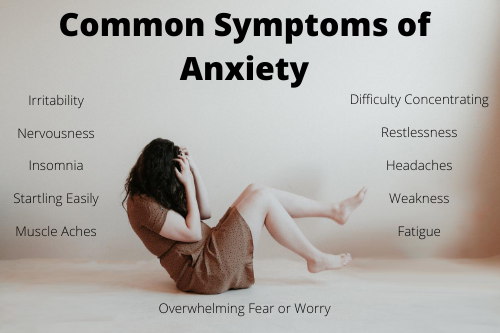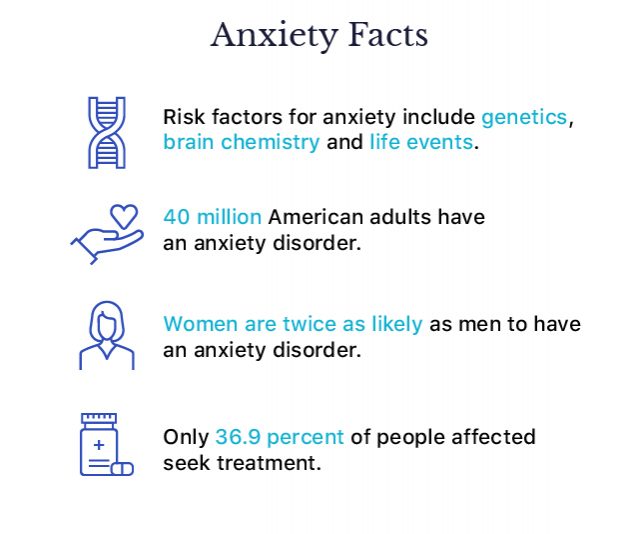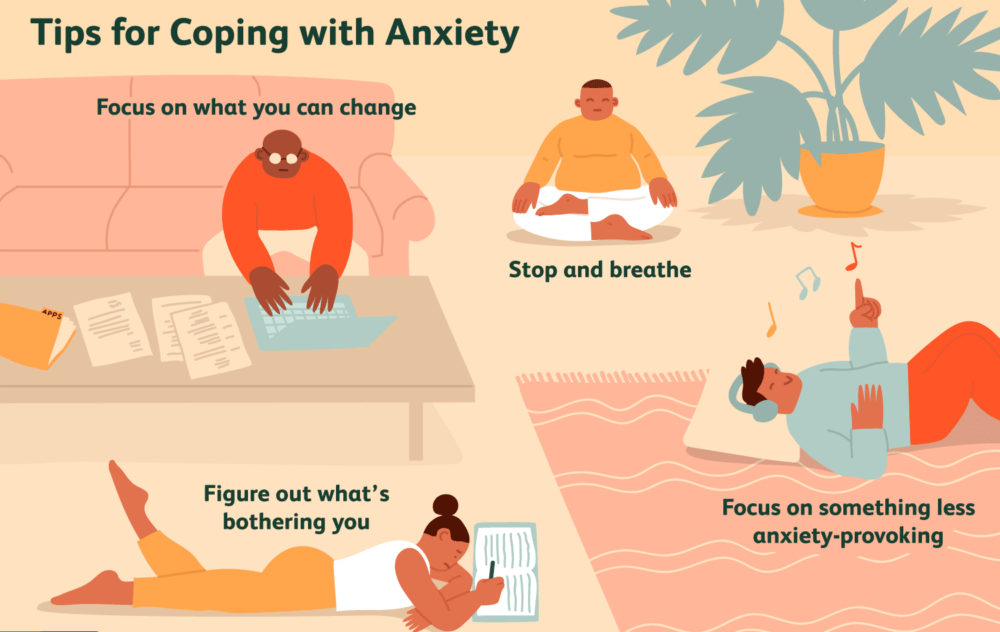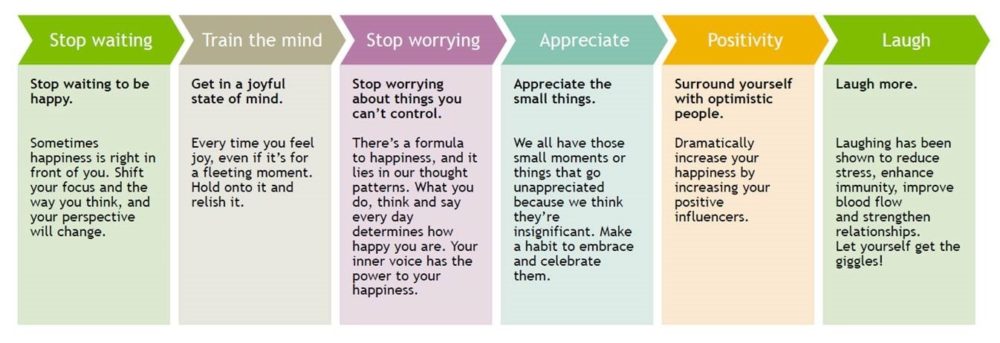EDITOR'S PICK
Simple Ways To Cope With Anxiety

Have you been suffering from repeated spells of anxiety?
People with anxiety, particularly overwhelming anxiety can often get trapped in a cycle or a loop of negative thoughts. An individual may experience various different triggers that set off an anxiety attack.

Situations that spark uncertainty about the future, such as the ongoing pandemic, can worsen symptoms. A trigger can be as simple as an every-day object – say for example, seeing a bottle of sanitizer, certain colours or disturbing patterns, needles, etc can trigger fear and compel the individual to ruminate or completely lose focus on tasks at hand.
The following are some simple tips to help cope with general symptoms of anxiety –
-
Use this time to understand your anxiety triggers
Map out a chart to help capture various triggers and the thought patterns that are associated with them. Spend some time every day with your thoughts to understand the link between thought, emotion and behaviour. The goal is to break repetitive patterns in your thought-behaviour process that are disrupting life.
You could rank each trigger or thought pattern with a corresponding level of fear/anxiety that it elicits in you, and try to devise methods to overcome these gradually. Challenge extreme thoughts that tend to make you spiral into a vicious cycle of anxiety.
-
Finding clarity with the help of distraction and relaxation exercises
Writing, talking loudly to yourself, talking to a loved and trusted person or talking to a therapist are ways in which it becomes easier for you to see your thoughts more clearly. Explore and understand if there could be other perspectives to a particular anxiety-causing belief.
Slowly replace anxiety causing thought patterns with a more neutral or positive outlook. When the fear is overwhelming, use distraction to stop spiralling in a negative loop of thoughts and practice relaxation exercises to feel more centred.
-
Seek community support
Anxiety sufferers often feel alone in their fears and that tends to worsen their symptoms. Know that there is a vast majority of people that are experiencing similar symptoms, across a range of mild to severe, who can relate to you.
Form a support group or become part of a pre-existing one to discuss your experiences and share coping strategies with each other. Sometimes just talking to someone and explaining what you are experiencing in detail will help ease the pain, however ensure that it is a neutral or empathetic listener.
-
Manage triggers – Limit News and Social Media
News items and social media posts are some of the most common triggers for people with anxiety. Avoid mindless scrolling and make an effort to consciously stay away from news or social media outlets that trigger fear of the future as it can make it difficult for you to go about your day.
Use credible news sources and check these once or twice a day. Identify similar such triggers and keep them out of your way or limit your exposure to them while you deal with your anxiety.
-
Regulate your daily schedule – have a healthy work-life balance
Spend more time doing activities that help you focus your attention and make you feel in control of your situation. This could be drawing/painting, online window shopping, engaging online games, cooking etc. Keep a certain time of the day for exercise, meditation, yoga to relieve stress and mental fatigue.
Resist the temptation to check emails, messages or take work phone calls after working hours. Speak to your teammates about this and agree to connect after work hours only if there is an emergency. Avoid excessively discussing worst-case scenarios.

Know that it is normal to feel more anxious and restless than usual given the circumstances and that creating a balance in your life will help you cope with these feelings. However if you are overwhelmed by fear, seek professional help as anti-anxiety medication may be required if it causing significant dysfunction in day to day life.

Coping with overwhelming anxiety is difficult and it is important for an individual to pay extra attention to their triggers and devise a safety plan to limit these. Consciously coping with anxiety triggers is key, along with seeking family and community support.

Article by Dr. Neeraj Raj B, Consultant – Psychiatrist, Aster RV Hospital































Sarada Pattanaik
July 21, 2021 at 12:32 AM
Good and befitting article looking at the current pandemic crisis.